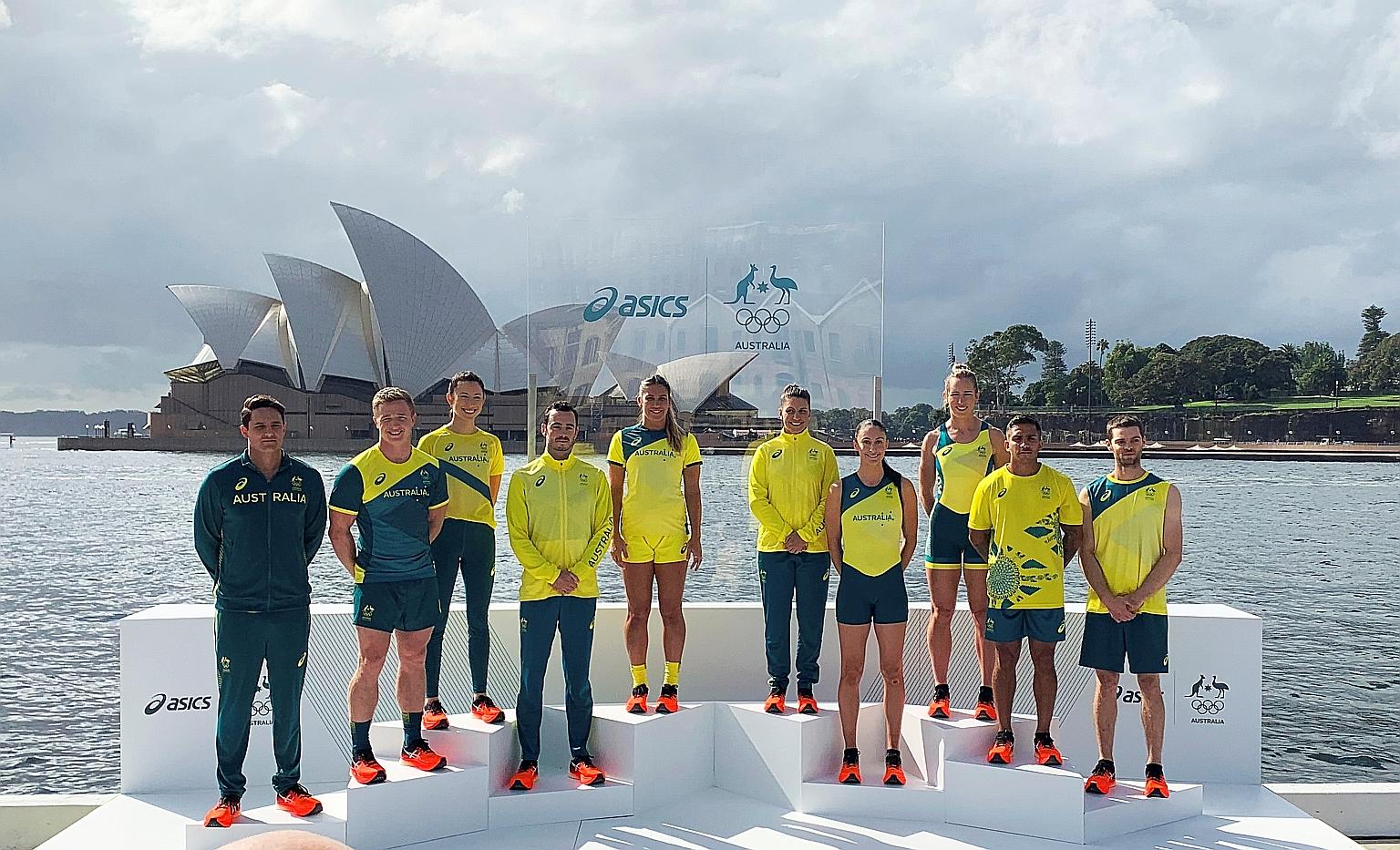Aussies drawn into Xinjiang cotton row
Official says team assured their Asics Games attire's material is not sourced from the territory
Sign up now: Get the biggest sports news in your inbox

Australian Olympians in front of the Sydney Opera House at the unveiling of the team uniforms for the Tokyo Olympics yesterday.
PHOTO: REUTERS
SYDNEY • Australian Olympians yesterday became embroiled in the global row over Chinese forced-labour cotton as the country revealed its uniforms for the upcoming Tokyo Games.
The Australian Olympic committee faced criticism as it rolled out Asics-branded sportswear, with the company facing questions over its use of cotton from the Xinjiang region.
"We've been assured that none of the cotton for the Australian Olympic team comes from that region," said Ian Chesterman, the Australian Olympic Committee's vice-president.
"I think athletes at the moment need to focus on what their job is, which is to get out there and compete for Australia."
At least one million Uighurs and people from other mostly Muslim groups are believed to have been held in camps in Xinjiang.
Human rights groups, independent media and foreign governments have found evidence that the local authorities have carried out mass detention, forced labour, political indoctrination, torture and forced sterilisation.
The United States has described the situation as "genocide" and has banned all cotton from Xinjiang, while Australia's parliament is considering a similar move.
Several major fashion brands, including Nike and adidas, recently announced they would no longer use cotton from Xinjiang.
But Japan's Asics was one of several firms - hoping to safeguard access to China's vast marketplace - that initially responded to the allegations by vowing to "continue to purchase and support Xinjiang cotton".
Nathan Ruser, a researcher at the Australian Strategic Policy Institute, was among the critics describing Australia's use of Asics sportswear as "disgusting and shameful".
An Asics spokesman yesterday told Agence France-Presse the initial company statement on Chinese social media was "unauthorised" and did not represent "our official corporate position on this matter".
"We are fully committed to working closely with business partners to ensure human rights are respected and environmental standards are met at all times," he said.
The Chinese government has denied carrying out rights abuses but companies that have voiced concerns have been punished.
Swedish fashion retailer H&M disappeared from Chinese shopping apps and has been targeted for boycott.
Chinese state-run tabloid The Global Times on Tuesday said Asics had become "the latest target of a boycott by Chinese customers" and was facing "catastrophic losses" after backtracking on its initial statement.
China is one of the world's largest suppliers of cotton, making up around one-fifth of the global total and nearly 90 per cent of its cotton is believed to come from Xinjiang.
"I don't think any Australian athlete wants to wear a uniform produced by a company that is sourcing cotton from Xinjiang," Elaine Pearson, Australia director for Human Rights Watch, told AFP.
"This is a test case for companies like Asics about how committed they are to upholding human rights principles. They should do their due diligence and be transparent in reporting about their supply chain.
"The Chinese government is showing its true colours by pressuring companies to be complicit in abuses rather than working to end violations against Uighurs and other Turkic Muslims."
AGENCE FRANCE-PRESSE


